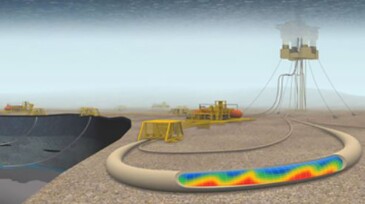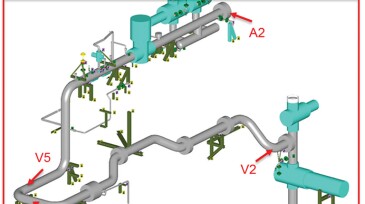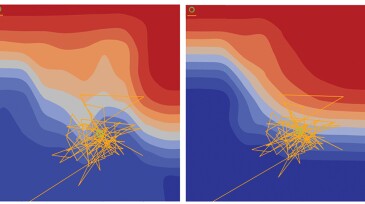case study
-
The authors’ objective is to understand further how technology can support the prevention of driver fatigue and to explore driver beliefs related to fatigue and the technology designed to assist in fatigue avoidance.
-
A wellbore repair tool was successfully deployed to rectify collapsed tubing in a remote well off the coast of Papua New Guinea.
-
This study in a shale-oil formation quantified the hydraulic fracture propagation process and described the fracture geometry by developing a geomechanical forward model and a Green’s function-based inversion model for low-frequency distributed acoustic sensing data interpretation, substantially enhancing the value of the LF-DAS data in the process.
-
Case studies demonstrate how an autonomous outflow-control device prevents growth and excessive fluid injection into thief/fracture zones and maintains a balanced or prescribed injection distribution.
-
Fluid identification, a critical process in fluid sampling, continues to be a challenge in temperatures above 350°F. At temperatures up to 450°F, fluid identification is currently achieved by bubblepoint and compressibility measurements, which cannot quantitatively measure contamination levels of the sample fluid. A possible solution involves using pyroelectric detect…
-
Shell and Tomson Technologies completed field trials in the Gulf of Mexico using new nanoparticle-enabled phosphonate and polymer inhibitors that improve the treatment lifetime of scale squeezes.
-
A combination of computational-fluid-dynamics and finite-element modeling offers a potentially powerful tool for assessing and diagnosing multiphase-flow-induced vibration problems in hydrocarbon-production piping systems.
-
Innovative elements of digitalization and automation of workflows provide a new approach for better handling of slugging in subsea developments with long tiebacks, potentially optimizing production and limiting the amount of flaring.
-
Wellbore tortuosity is a term that has steadily increased in relevance to the oil and gas industry over the past decade, but its importance is especially clear in the current environment.
-
The success of any digital oilfield project is predicated on the quality of the data structure, acquisition, communication, validation, storage, retrieval, and provenance of the data.










